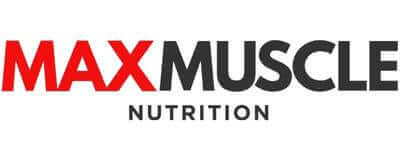Protein stands as a cornerstone in the edifice of nutritional strategies aimed at muscle building and recovery. Its pivotal role in repairing and growing muscle tissue is well-documented, making it a critical component for athletes, bodybuilders, and fitness enthusiasts alike. This comprehensive guide will explore the multifaceted role of protein in muscle development, debunk common myths, and provide insights into optimizing protein intake for maximal muscle gains.
Understanding Protein and Muscle Synthesis
Protein is composed of amino acids, often referred to as the building blocks of muscle. When you consume protein, your body breaks it down into these constituent amino acids, which are then used to repair and grow muscle fibers that have been stressed during exercise. This process, known as muscle protein synthesis (MPS), is essential for recovery and growth.
The Role of Essential Amino Acids
Of particular importance are the nine essential amino acids that the body cannot synthesize on its own. Leucine, in particular, plays a critical role in initiating MPS, highlighting the need for high-quality protein sources in your diet.
Optimal Protein Intake for Muscle Building
The recommended dietary allowance (RDA) for protein is 0.8 grams per kilogram of body weight per day for the average adult. However, research suggests that individuals engaged in regular strength training may benefit from higher intakes, ranging from 1.6 to 2.2 grams per kilogram of body weight, to support muscle repair and growth.
Timing Matters: Protein Distribution
Beyond the total daily intake, the distribution of protein throughout the day can impact muscle synthesis. Consuming protein in balanced amounts across meals and snacks, particularly after exercise, can maximize MPS rates and support greater muscle gains.
Protein Sources: Variety for Comprehensive Benefits
Incorporating a variety of protein sources can ensure a broad spectrum of amino acids and other nutrients. Animal-based proteins like meat, dairy, and eggs often provide all essential amino acids in optimal ratios. Plant-based sources, including legumes, grains, and nuts, can also contribute significantly to protein intake, especially when combined to cover the full amino acid profile.
Debunking Protein Myths
Myth: More Protein Always Means More Muscle
While protein is crucial for muscle building, there is a limit to how much muscle your body can synthesize in a given period. Excessive protein intake beyond your body's needs may not translate to additional muscle gain and can place undue stress on the kidneys over time.
Myth: Plant-Based Proteins Are Inferior
With careful planning, plant-based diets can provide sufficient protein for muscle building. Diversifying plant protein sources can ensure a complete amino acid profile, supporting effective muscle repair and growth.
Conclusion
Protein is undeniably a powerhouse nutrient for those looking to enhance muscle mass and strength. Understanding its role in muscle synthesis, optimal intake levels, and the importance of variety can empower you to tailor your nutrition to support your fitness goals effectively. As with any dietary strategy, balance and moderation are key, emphasizing whole foods and a comprehensive approach to nutrition.
As you harness the power of protein in your muscle-building journey, sharing insights and experiences can help demystify nutrition for others in your fitness community. Collaborating on nutritional strategies can foster a supportive environment where knowledge and healthful practices thrive, furthering everyone's journey toward optimal fitness and well-being.
Mike Pringle

